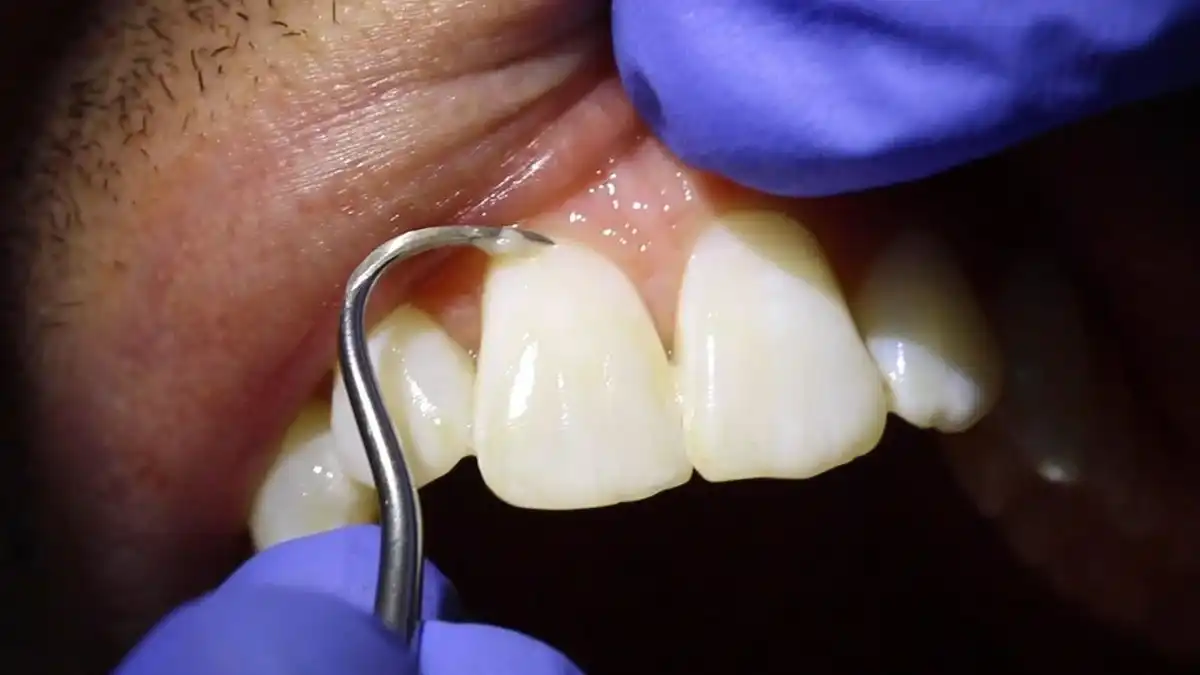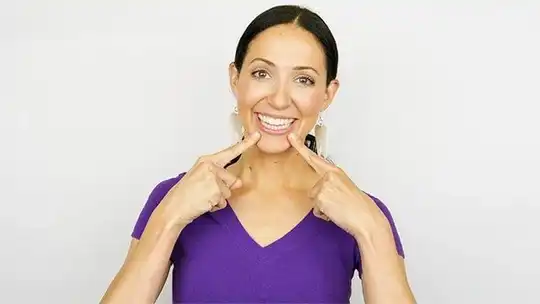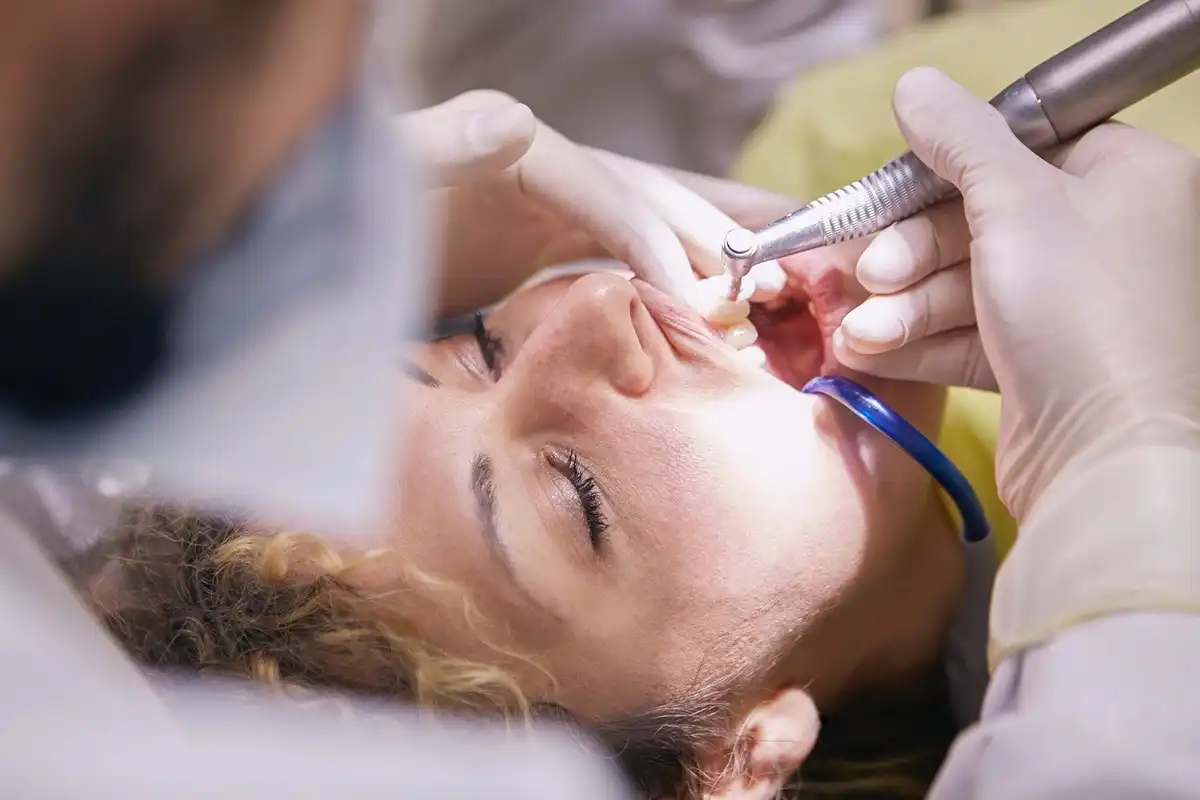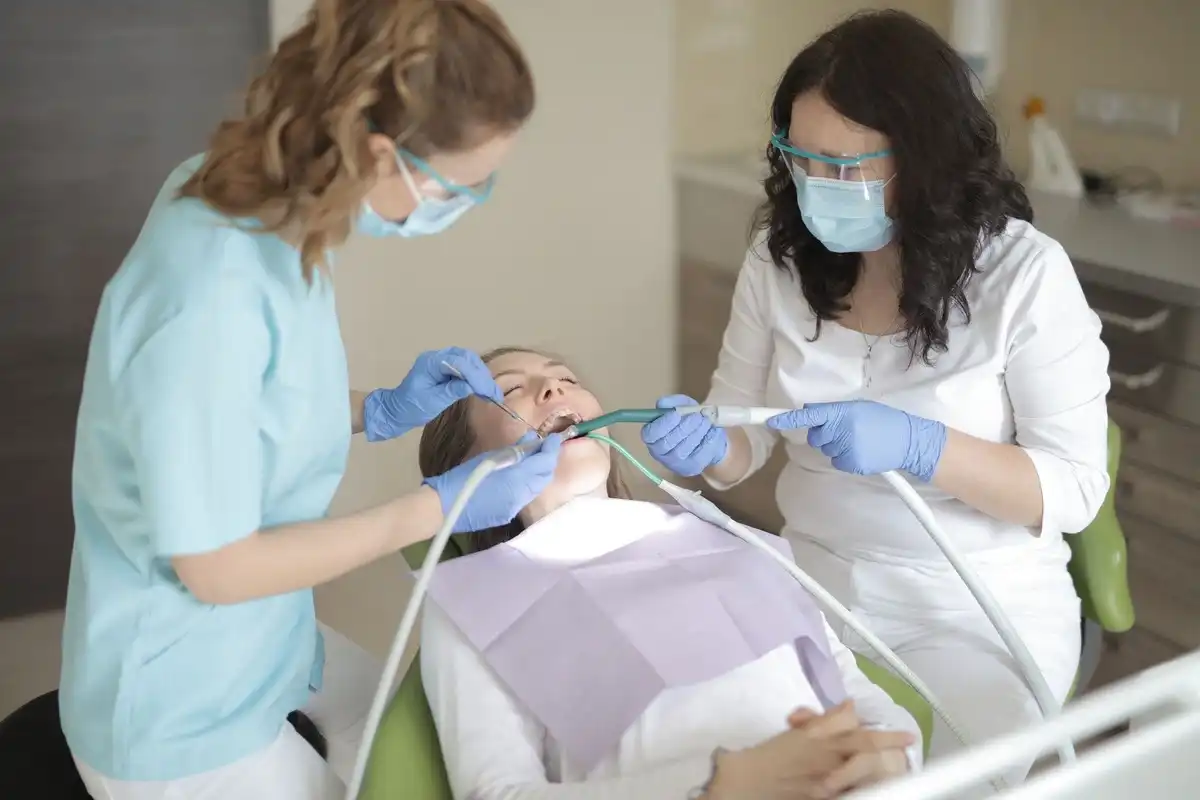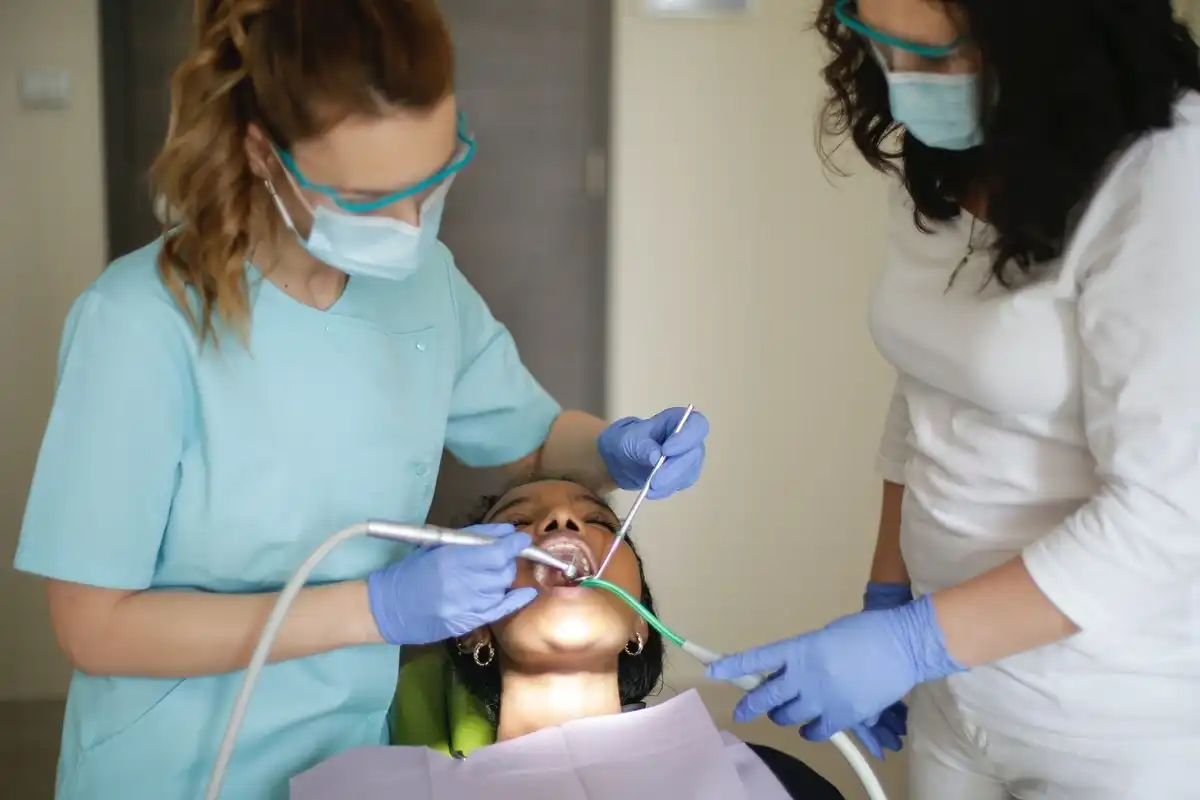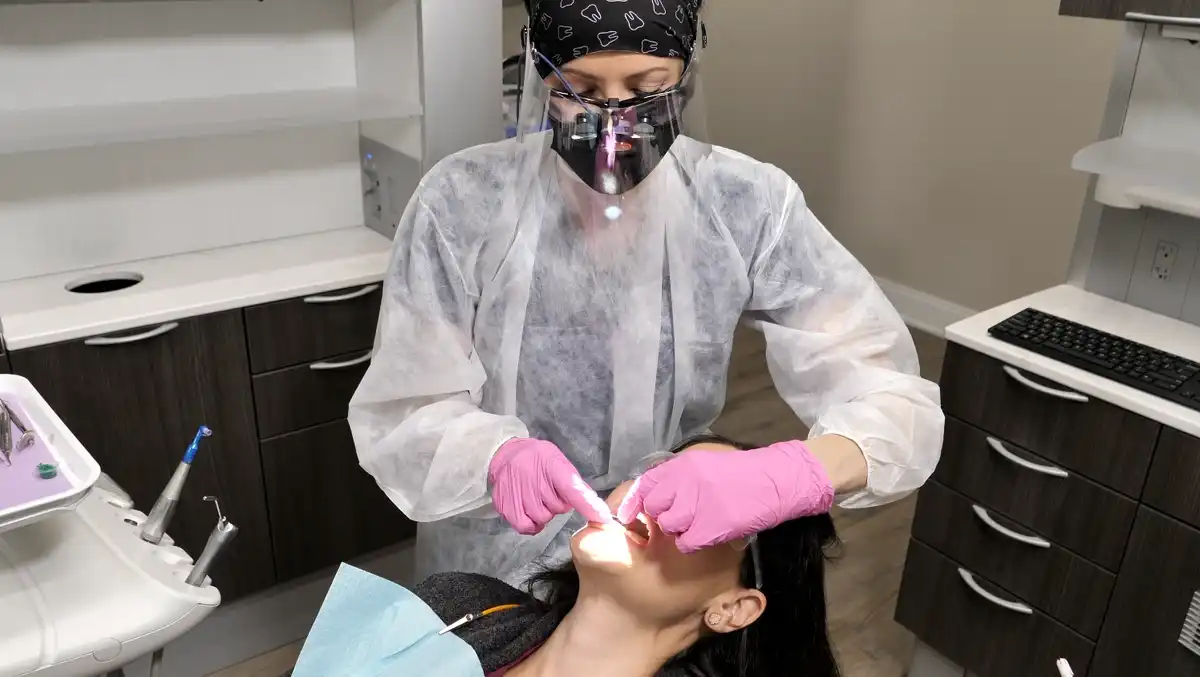15 Key Dental Hygienist Skills and Qualifications


What does it take to make sure you have all of the qualifications for a dental hygienist's job? Are there certain personal characteristics or physical skills for dental hygienists that you need to know about? Yes, and yes. But even if they don’t all come to you naturally, you can work on and grow those skills and abilities to make an excellent RDH one day. Lets see if the dental hygiene career is for you!
What Do Dental Hygienists Do?
Dental hygienists work one-on-one with patients of all ages, usually seeing them 2-3 times a year for preventative or periodontal maintenance appointments. They educate patients about their oral conditions and how to maintain them, screen for diseases like oral cancer, conduct health history reviews, take X-rays and impressions, fit whitening trays, and of course, remove plaque and calcified biofilm deposits on the teeth and under the gum surfaces.
By design, dental hygienists are devoted to helping their patients prevent oral diseases through effective home care protocols and prophylactic care. They show their patients how to modify their oral hygiene routines to effectively reduce the risk of gum disease, bone loss, tooth decay, bad breath, and more.
Dental hygienists also pre-screen for conditions and alert their supervising dentist about them during the patient exam for a formal diagnosis. If treatments are necessary, the hygienist will review the care plan and answer any questions that the patient may have. They’re a wealth of knowledge regarding all things dental health.
Qualities of Dental Hygienists
You might think that most hygienists are “Chatty Cathys” because of the reputation we have for talking to patients with our hands in their mouths. Sure, some dental hygienist are pretty talkative and outgoing; others are more reserved and introverted. You don’t have to be the life of the party or able to talk to a wall to qualify to be a hygienist. But you do need to have these three important qualities:
1. Caring
You need to truly care about people. I’ve heard it joked about that hygienists double as therapists; you never know when you’re going to have someone sit down in your chair with anxiety, depression, or just start crying because of what’s going on in their life. When you care about other people, they’ll feel respected and more likely to trust you with their oral health needs. You’re a dental care provider, so it’s vital that you put other people first and consider them in the decisions that you’re making. Not just your patients but also your co-workers and supervising dentists.
2. Empathy
Have you ever had a doctor or nurse who wasn’t empathetic? How did it make you feel? Dental providers need to be the same way. As a dental hygienist, patients are going to usually spend more time with you than they do the rest of the dental team. When you listen to and understand their concerns, it helps make oral health care more accessible and less stressful and truly makes a difference in the patient’s quality of life. You never know what people are going through, so it’s best to assume that just about everyone is carrying some extra baggage on their shoulders.
3. Organized
It’s ok if you tend to have a desk (or bedroom) that’s cluttered as long as you can stay organized at work. There are dozens of different instruments and supplies you’ll be using each day, and it’s important that they’re consistently stored in the same place and with the same organization system as other team members use. This ensures that things can be found when they’re needed and that multiple hygienists and staff can run their schedules efficiently. Additionally, you’ll need to be organized when it comes to maintaining your licensure and annual continuing education credentials.
12 Skills That Make a Great Dental Hygienist
What are the most important skills for dental hygienists to have? Here’s my list of the ones that you seriously need to think over. Maybe you’re weak in a couple of areas; if so, you’ll want to consider how that barrier might influence the type of hygienist you become. Is it something you can work on? If so, consider talking to an RDH mentor, reading self-help books, working with a tutor, or even seeing a professional like a therapist to help. Obviously, you don’t need the same help with each one, but know where to look. Truly reflecting on yourself will help you determine if you fit the qualifications for making a great dental hygienist before you ever start looking for a job.
1. Communication Skills
You guessed it. One of the most important skills for dental hygienists is great communication. You’ll need to know how to communicate conditions, oral hygiene instructions, and care plan recommendations to your patients in an easy-to-understand manner. Active listening is also an important communication skill to have, as you’ll want to hear the concerns and questions your patients ask so that you can respond to them appropriately. Clear communication is also important to make sure everything is well-understood and runs efficiently between you and the other members of your dental office.
2. Attention to Detail
Teeth have dozens of unique characteristics and surfaces to clean. As a hygienist, you’ll multitask and clean certain surfaces from one direction, then swap and clean the other surfaces from another. You also have to review the patient’s medical history to watch for risk factors that could be potentially life-threatening in a dental office. If you tend to skim over the details or struggle to hold your attention, it will be harder to provide your patients with quality care and a safe environment.
3. Physical Dexterity
I hate to be the one to break it to you, but you need to have excellent hand-eye coordination and dexterity if you want to be a dental hygienist. You’re going to be handling small, sharp, pointed instruments and frequently sliding them under a patient’s gums on purpose to clean the root surfaces of teeth. If you lack strong dexterity in your hands, then a career as a dental hygienist is probably not a good idea.
4. Critical Thinking and Problem-Solving
Sometimes your role as a dental hygienist is playing detective and knowing the right questions to ask. Maybe a patient is experiencing weird oral symptoms, so you review their medical history and prescription drugs that they’re taking when you figure out that they’re related. It also means you can review past records and address changes in the patient’s health to intercept issues while they’re smaller and easier to handle. If you’re getting ready to go into dental hygiene school and have to take an entrance exam, there’s a good chance that there will be a section on critical thinking skills.
5. Compassion
A lot of people go into full-blown anxiety mode or feel embarrassed whenever they go into a dentist’s office. The last thing they need is someone to judge or talk down to them. Being compassionate will get you a long way when it comes to connecting with your patients and helping them better their oral health. Especially if your patient's oral health has a history of bad dental experiences, sensitive teeth, oral trauma, or major dental disease that they’re finally ready to address.
6. Professionalism
A professional work ethic is a must for anyone in health care. Don’t overshare, don’t ask personal questions, don’t post inappropriate things about patients on social media, and always respect your peers around you. You’ll need to practice 100% patient confidentiality, maintain high standards of care, and, yes, need to be polite to people who might otherwise act like grumps (even if you really don’t like to be around them.)
On a more superficial note, professionalism also means you’re well-groomed, have good hygiene, and follow any dress codes related to your role.
7. Multitasking
Being a great multitasker will make you an even more efficient dental hygienist. You’ll be doing things like scheduling appointments as you write up notes, probing quickly, and getting X-rays before the cleaning so that the doctor can step in whenever he’s free, having the right instruments on hand for unique tooth surfaces that are harder to clean, and knowing where things are at if you need to grab them quickly. You’re always thinking ahead about what you’re doing next before you even get to it. so asking for exams durning dental procedures, is a great time to go over good oral hygiene practices
8. Technical Aptitude
Are you pretty tech-savvy? Most dental offices use practice management software and digital imaging programs to chart patient records, take X-rays, and even scan in 3D models of teeth. It’s important that you feel confident about learning new technology and oral hygiene techniques. If this is a second career and you find that learning new software programs is challenging, this may be a difficult learning curve. Thankfully, most practice software out there will offer free staff training to get you to where you can operate it with confidence.
9. Adaptability
One of the most important skills for dental hygienists to have is being able to switch gears on the fly. Did the front desk just work a pediatric patient in 10 minutes from now after your other patient no-showed? You need to be ready to roll. Does your patient have a hyper-sensitive gag reflex? Then you need to approach them differently to not set it off.
It might seem like you’re doing the same thing day after day, but adapting your methods to the patient and office setting often happens when you least expect it. Get comfortable with it early on in your career!
10. Time Management
Once you’re out of dental hygiene school, you’re thrown face-first into a rigid hygiene schedule where you see a certain number of patients within a certain length of time. This is probably the most difficult transition for every new dental hygienist.
Thankfully, having good time management skills will help. When you’re able to know how long it takes to perform a certain task, are great at multitasking, and stay on schedule, you’ll do just fine. The problem happens when you get 5-10 minutes behind on every patient, and by mid-day, you’re missing your lunch hour because of it. You need to be able to work your administrative tasks into the time built into the patient appointments; you can’t spend the full hour scaling and polishing someone’s teeth.
11. Teamwork
Even though hygienists mostly work solo in their own clinical room (“op”), they still have to be great team players. You will be sharing tasks, floating between areas of the office, and collaborating with the dentist, assistants, and any other hygienists on your team. You cannot have a “me, me, me” mentality and be a great hygienist.
For example, if your patient cancels and you’re caught up on your other to-dos, consider helping the receptionist call patients, stocking the other ops for the assistant, or running instruments through the sterilization cycle. When you help out everybody else, they’ll be more likely to help you back.
12. Continuous Learning
Guess what? Once you’re out of dental hygiene school, you’ll still continue to learn. Dental advancements and techniques are always evolving, so it’s important that you stay updated with the latest trends and research. Thankfully, you won’t have to read dozens of scientific papers, that is, unless you really want to. Most dental hygienists get their annual “continuing education credits” or “professional development” completed at in-person conferences, training classes, or online seminars from their computers. Every state requires licensed hygienists to have so many training hours to maintain their licensure, so you’ll need to keep track of your classes and make sure you’re up to date with all of the requirements to renew your license.
Qualifications To Be a Dental Hygienist
In addition to all of these physical, cognitive, and social skills for dental hygienists to have, you also need to have the right training. That means getting all of your science prerequisites taken care of, attending a credentialed dental hygienist program, and then passing your national board exams. Once you have all of those, you can apply for state licensure and get to work!
You need the following qualifications to be a dental hygienist:
- Have at least an associate’s degree in dental hygiene (from an accredited dental hygiene program)
- Pass exams (national board and regional ones)
- Submit your license application to your State Department of Financial and Professional Regulation
- Keep your license by doing continuing education
Anybody can go to hygiene school and study to pass a board exam. But not everybody will have the best qualifications for dental hygienists. Maybe you’re a straight-A student, but you’re rude to the people around you. There’s a better chance that the student who makes Bs and is kind to others will get the job before you do. Remember that your scores are just one part of the skills you need to have to be great in your new career.
Types of Dental Hygienist Degree Programs
One of the great things about deciding to become a registered dental hygienist is that you can pick between a 2-year associate’s degree program and a 4-year bachelor’s degree program. Suppose you’re a junkie when it comes to learning and want the full traditional degree; great. If not, you can also become a licensed hygienist by attending a credentialed program at a community college. Some people want in and out of school as fast as possible. If you decide that you want to complete your degree later, you can! Regardless of whether an RDH has an associate’s or bachelor’s degree, the pay is the same, and you can apply for the same job in most cases.
Remember, accredited! Almost every state requires you to graduate from a dental hygiene program accredited by the American Dental Association.
Bonus: there are even master’s degree programs for existing dental hygienists who want to get into academia or research, and most of them can be taken online on a part-time basis. You’ll need to have a bachelor’s degree to apply, though.
Should You Study To Become a Licensed Dental Hygienist?
If you love the idea of working with people, are compassionate, are a good listener, and are great with your hands, then chances are you’ll make an excellent dental hygienist. Being good at taking science classes is just part of the equation. Qualifications for dental hygienists in the job industry are more “soft skills,” like how they interact with other people and their work ethic.
Anyone who is reading this likely cares enough about whether they have it “in them” or not to be a great hygienist. And if that’s the case, you do. Self-reflection and planning likely mean you’re going to be great when it comes to working with patients each day.
If you’ve graduated from dental hygiene school and passed your board exams, you’ve already proven that you can be a dental hygienist. But all of these other personality traits are crucial if you’re going to be a valuable employee who is successful in their field.

Make your inbox smile!
Subscribe
